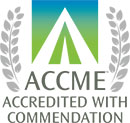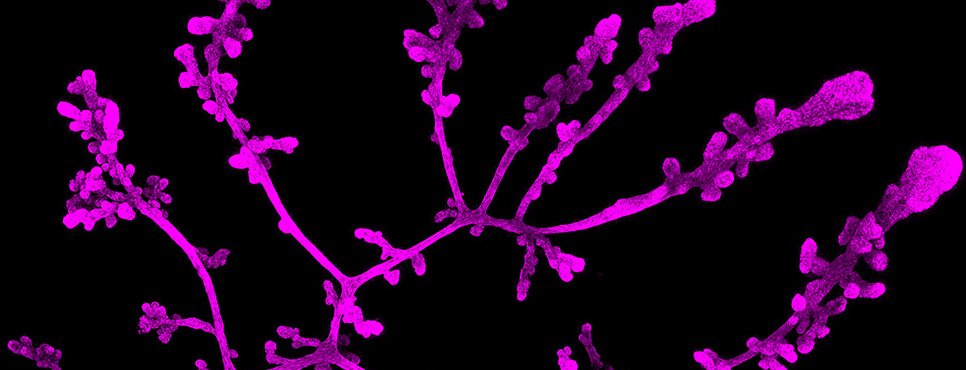Continuing Medical Education
Accreditation Statement

The American Association for Cancer Research (AACR) is accredited by the Accreditation Council for Continuing Medical Education (ACCME) to provide continuing medical education activities for physicians.
Credit Designation Statement
AACR has designated this live activity for a maximum of 19.0 AMA PRA Category 1 Credit(s)™. Physicians should only claim credit commensurate with the extent of their participation in the activity.
Credit certification for individual sessions may vary, dependent upon compliance with the ACCME Accreditation Criteria. The final number of credits may vary from the maximum number indicated above.
Claiming (CME) Credit
Physicians and other health care professionals seeking AMA PRA Category 1 Credit(s)TM for this live continuing medical education activity must complete the online CME Request for Credit Survey by Monday, November 23, 2020. Certificates will only be issued to those who complete the survey. The Request for Credit Survey will be available via a link on this webpage and via email. Your CME certificate will be sent to you via email after the completion of the activity.

Successful completion of this CME activity, which includes participation in the evaluation component, enables the participant to earn up to 19.0 Medical Knowledge MOC points in the American Board of Internal Medicine’s (ABIM) Maintenance of Certification (MOC) program. Participants will earn MOC points equivalent to the amount of CME credits claimed for the activity. It is the CME activity provider’s responsibility to submit participant completion information to ACCME for the purpose of granting ABIM MOC credit.
To receive ABIM MOC, participants must request MOC in the CME Request for Credit Survey and complete all questions. Once these steps are completed, AACR will submit your completion information via the ACCME’s Program and Activity Reporting System for the purpose of granting MOC points.
Statement of Educational Need, Target Audience, and Learning Objectives
Advances in breast cancer research and treatment have resulted in a relatively stable number of new breast cancer cases over the past decade and more importantly, a reduction in the number of deaths each year from breast cancer. However, in 2019, the National Cancer Institute estimates over 268,600 new cases of breast cancer and over 41,000 deaths from breast cancer. Breast cancer remains the second most prevalent cancer for women (only non-melanoma skin cancer is diagnosed more frequently).
The research being presented at this conference will help to guide the development of more effective detection, prevention, and treatment strategies for breast cancer patients. Advances in our understanding of the tumor microenvironment, biomarkers, tumor heterogeneity, treatment resistance, personalized risk and prevention, and future therapies, will be presented in order to provide attendees with a broad view of the field or research and build synergies between basic, translational, clinical, and epidemiologic researchers.
Clinicians will leave this program with new knowledge in the fields of breast cancer heterogeneity, personalized risk assessment, biomarker analysis, mechanisms of treatment resistance, and immunotherapeutics, which all have direct correlations to prevention and care. The impact of these fields on future patient treatment decisions will be discussed.
This program will provide attendees with the latest advances in modeling breast cancer, risk assessment, functional interpretation of “omic” data, and other important areas for both basic researchers and clinical investigators.
After participating in this CME activity, physicians should be able to:
- Explain what risk factors vary among different populations and how prevention strategies can be implemented for those at greater risk.
- Assess the strengths and shortcomings of identifying and utilizing biomarkers for breast cancer risk, detection, and treatment.
- Articulate appropriate applications and interpretations of large-scale “omic” data in breast cancer research.
- Assess the potential for immunotherapy in breast cancer treatment.
- Identify mechanisms of resistance to targeted therapy.
Disclosure Statement
It is the policy of the AACR that the information presented at AACR CME activities will be unbiased and based on scientific evidence. To help participants make judgments about the presence of bias, AACR will provide information that Scientific Program Committee members and speakers have disclosed about financial relationships they have with commercial entities that produce or market products or services related to the content of this CME activity. This disclosure information will be made available in the Program/Proceedings of this conference.
Acknowledgment of Financial or Other Support
This activity is supported by Professional Educational Grants which will be disclosed at the activity.
Questions about CME?
Please contact the Office of CME at (215) 440-9300 or [email protected].
